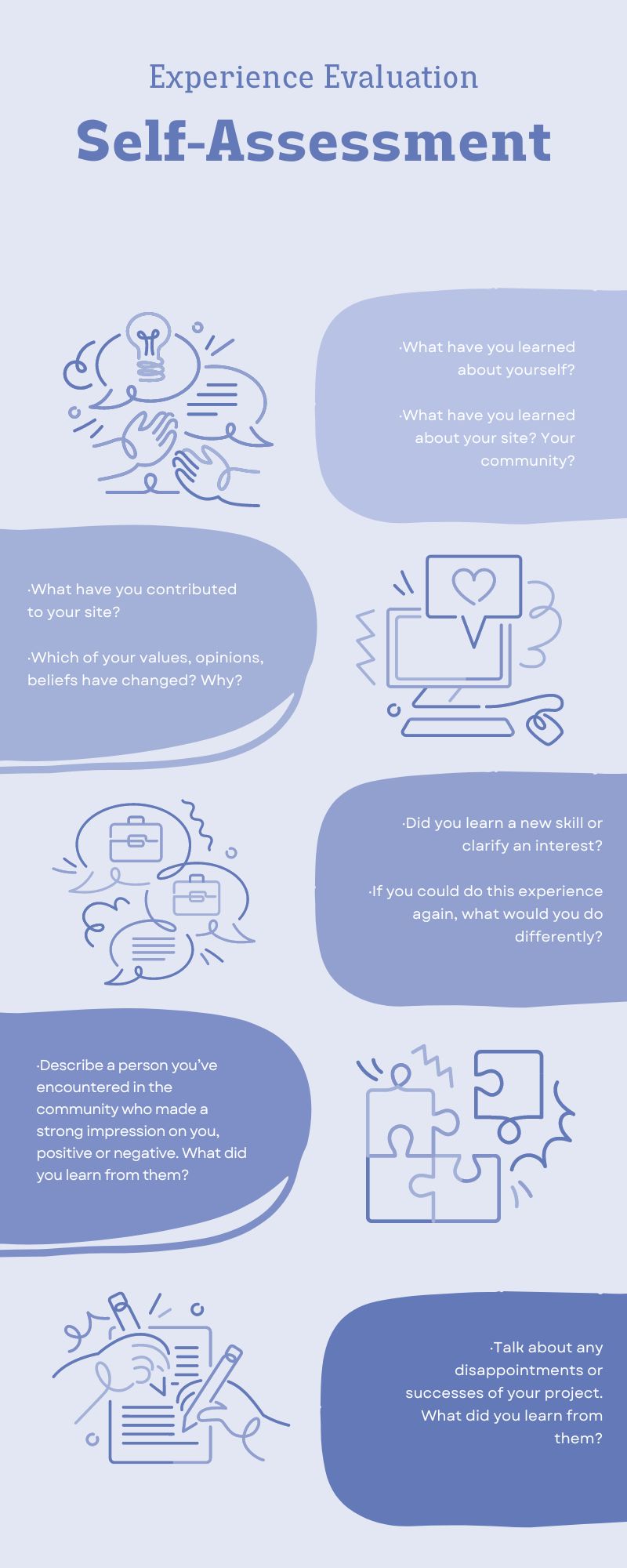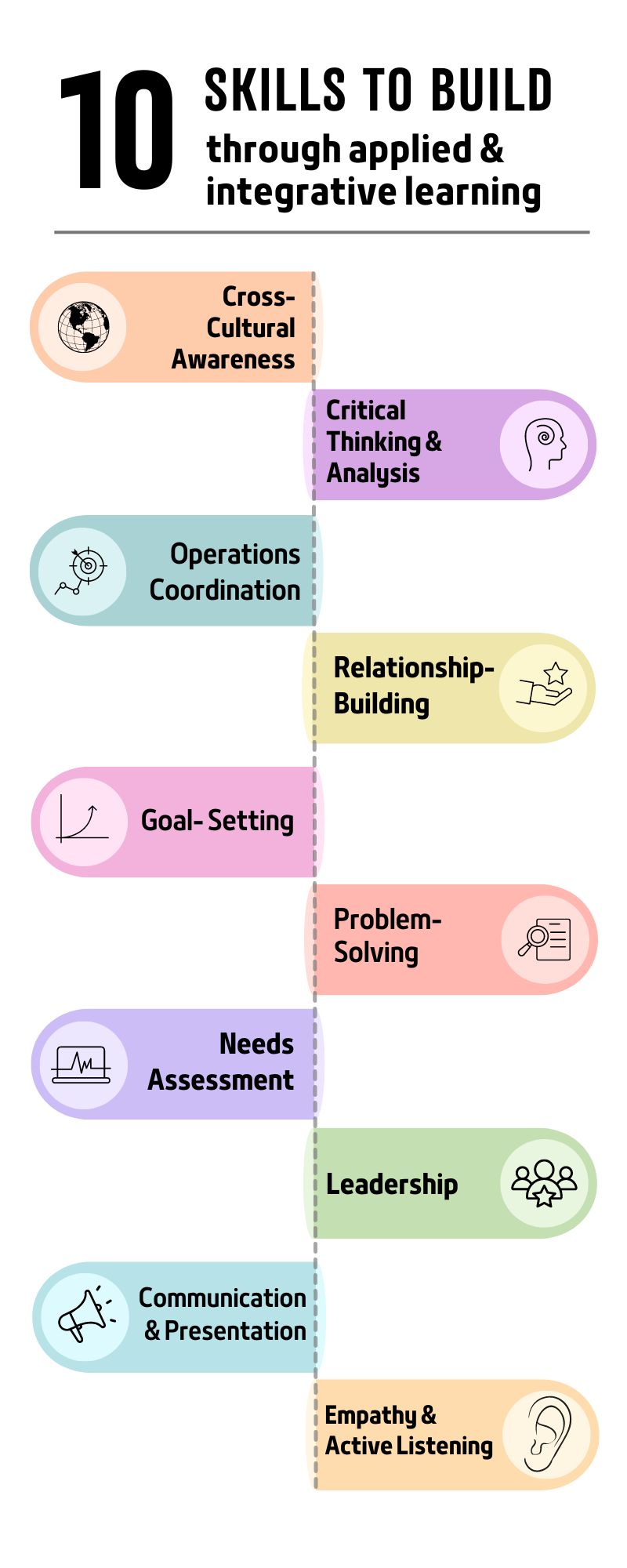4 Part 3: Reflecting on Your On-Site Experiences
Ezenwayi Amaechi Ejiribe; Jonathan Noel; and Sara Namazi
1. Experience Evaluation
- Self-Assessment: Self-evaluation is an important learning opportunity. This can include your evaluation of your on-site engagement and outcomes from your applied and integrative learning, which can lead to the identification of areas of strength and improvement.
One way to practice self-assessment is to ask yourself key questions. Below is a sampling of possible self-assessment questions to ask, taken from https://experiencelearning.utk.edu/wp-content/uploads/sites/21/2017/08/Guided-Reflection-Questions.pdf. You may also seek out other self-assessment questions that pertain to your experiences and/or your specific site.

Source: Author’s construct, 2024
- Review and assess your Objective(s) and SMART Goals. Return to the Objectives and SMART goals you set at the beginning of your experience and review your progress. Some questions you can ask yourself include:
- Did you accomplish your goals and objectives?
- In reviewing your accomplishments, what are you most proud of or what was your biggest takeaway?
- If you did not meet or reach your goals, reflect on what hindered you.
- What might you do differently next time (e.g. would you adjust your goals)? Would you change the way you went about meeting your goals? How? Why would you make those changes)?
- Feedback: Meet with your applied and integrative learning site supervisors to seek feedback. Use their input to improve your skills and approach. Below are some resources you can use to give and receive feedback:
- How to Use Feedback Effectively: A Guide for Students (adapted from a guide written by undergraduate students at the University of Surrey, in collaboration with Dr Naomi Winstone and Dr Robert Nash.)
- Receiving and Giving Effective Feedback (Waterloo University)
- Continuous Improvement: Seeing the applied and integrative learning process as an ongoing learning opportunity will help you to grow personally and professionally.
2. Transitioning to Professional Life
- Career Planning: You can use all your experiences gained from your applied learning to help you as you plan your career. For example, it can help you to discover industries, roles, and institutions that interest you.
- Job Applications: You are encouraged to emphasize what you learned during your applied and integrative learning experience, the projects you worked on, and the results.
- Skill Identification: You will have the opportunity in your on-site learning to identify the skills you already have, refine them, and then develop new skills. You are strongly encouraged to complete a skill inventory at the end of your experience, to name the skills that further developed or developed over your time on site.

Source: Author’s construct, 2024
- Lifelong Learning: The key to success is being a lifelong learner and your learning should continue even after your applied and integrative learning experience ends. You can continue to seek new experiences, skills, and knowledge throughout your life and career. We wish you well!

